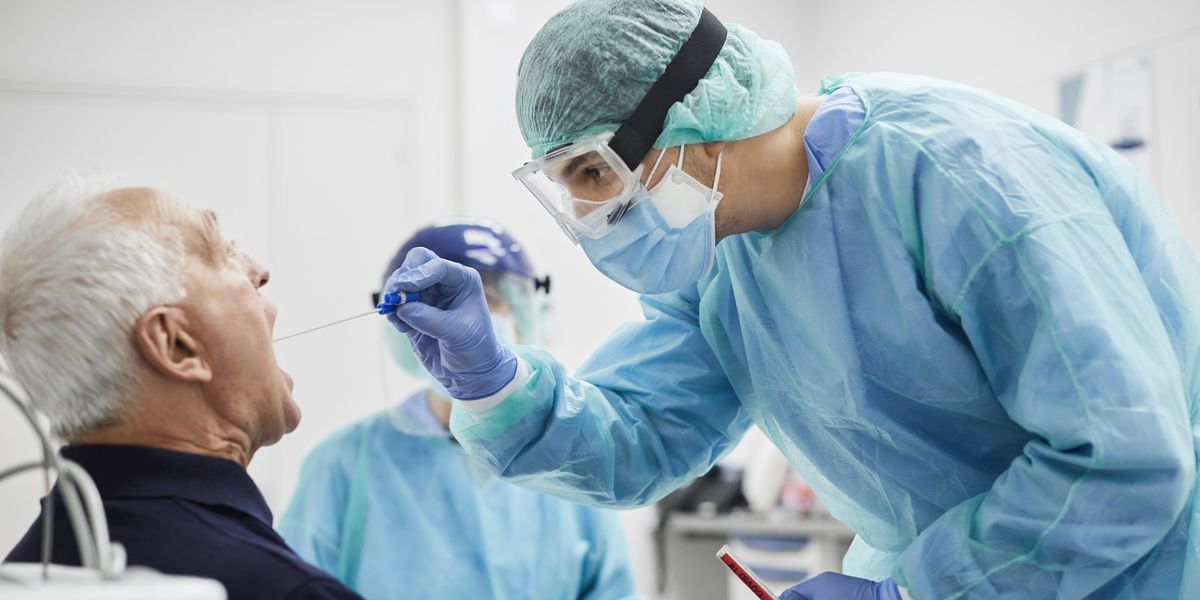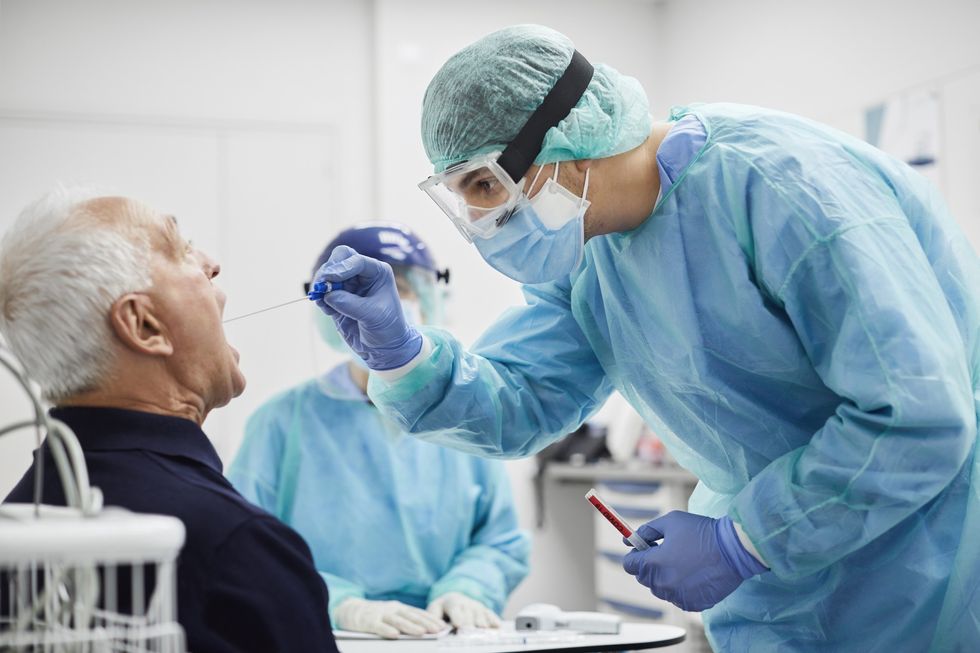



Billions of pounds were handed out in high-value pandemic contracts with minimal scrutiny, a fresh analysis of Covid spending has found - sparking urgent calls for an independent investigation.
The findings come from the first academic review of more than 1,000 Covid-related government contracts worth over £1 million each, carried out by Professors Carl Heneghan and Tom Jefferson at Oxford University’s Centre for Evidence-Based Medicine.
Their review draws on a newly released HM Treasury report published this month, which outlines the financial losses tied to pandemic procurement - including £1.4 billion lost on failed PPE contracts.
The new analysis is the first to show the scale, detail and systemic weaknesses behind contracts awarded and has led to calls for an inquiry into Covid waste and fraud - at taxpayers expense.
The previous Treasury’s findings came amid scrutiny of pandemic-era contracts, with more than 4,000 separate Covid-related contracts recorded by Government departments — many worth millions, and some still under investigation.

Billions of pounds were handed out in high-value pandemic contracts with minimal scrutiny, a fresh analysis of Covid spending has found - sparking urgent calls for an independent investigation
Getty
Professors Carl Heneghan and Tom Jefferson new findings, published on the website Trust the Evidence highlight a pattern of high-value deals signed off with minimal scrutiny or accountability during the height of the emergency.
Speaking exclusively to GB News Professor Heneghan said: “We are aghast that given the sheer scale of waste, fraud and profiteering that no one in government is taking this seriously. Taxpayers continue to pay the price of the sheer waste and profiteering that occurred in the pandemic.
"If you want to know why we’ve run out of money in the UK and are having to cut benefits and winter fuel payments to pensioners. We literally threw away tens of billions of pounds which is now debt and if we continue to bury our head in the sand we will continue to have a problem with what money we give to the government and how it spends that money on our behalf.
“We need a thorough investigation to claw back the billions that disappeared, or was spent on projects that failed to deliver or were unusable - if we don’t learn from the past how can we make decisions in the future?”
According to the Treasury, the Government spent around £12 billion on PPE in the 2020–2021 period. Yet almost £9 billion of this was ultimately written off – either because items were not fit for purpose, delivered too late, or bought at inflated prices.
One of the largest examples is a £260,229,846 contract awarded in July 2021 to Kuehne + Nagel Ltd for “Warehousing, Storage, Kitting & Fulfilment” of Covid test kits and components.
The deal spanned two years and was awarded by the Department of Health and Social Care. The firm’s UK base, from which the contract was managed, is now up for rent.
A further £51million was awarded by NHS Digital to Deloitte LLP for a nine-month contract starting June 2020 to develop digital platforms for the Covid national testing programme.
The contract involved “digital solution design, ordering portals, and mobile apps.” Deloitte went on to post record revenues that year.
In another case, Eurofins Biomnis UK Ltd was paid £21.6 million for just 89 days of laboratory storage and processing capacity, as part of the Test and Trace programme - equating to around £260,000 per day.
Separate investigations have also revealed the scale of consultancy fees paid during the pandemic. The Government employed 900 consultants on daily rates of £1,000 as part of the Test and Trace rollout - costing taxpayers up to £1 million a day.
The programme, which cost a total of £37 billion, has been heavily criticised by Parliament’s Public Accounts Committee, which concluded it had “no clear measurable impact” on reducing the spread of the virus.
The largest contract listed on the Government’s Covid Contracts Finder was awarded by Public Health England (PHE) in March 2021, worth £15 billion for “Laboratory Diagnostic Testing Services.”
However, PHE ceased operations just six months later, in September 2021, raising questions about oversight and delivery.
Professors Heneghan and Jefferson noted that despite the size of the deal, “it remains unclear how the contract was monitored or fulfilled after PHE’s closure.”
The Treasury report also highlights the cost of stockpiling medicines. An estimated £1.2 billion was spent on unused antivirals over two and a half years, much of which has now expired or is no longer clinically relevant. In some cases, entire batches were destroyed.
In previous research posts on Trust the Evidence, Profs Heneghan and Jefferson questioned why “such large quantities of drugs were ordered without a clear rollout plan,” and how many were eventually used in patient care.
Chancellor Rachel Reeves commented on the treasury report, saying: “The country is still paying the price for the reckless handling of Covid contracts, which saw taxpayer pounds wasted and criminals profit from the pandemic.”
The Government has said that some procurement decisions were made under emergency conditions. However the Professors have called for accountability.
The Treasury figures also reignite scrutiny of the “VIP lane” for PPE procurement. This fast-track route saw firms with political connections awarded contracts - some of which later failed to deliver.
One company awarded £203 million to provide medical gowns did not deliver a single usable item. The Government is pursuing legal action to recover funds.
A 2020 National Audit Office report found that firms referred by MPs or ministers were 10 times more likely to secure a contract than those applying through normal channels.
The Government’s Contracts Finder lists over 4,000 pandemic-related contracts, but many are still not fully explained.
Descriptions like “strategic support” and “business continuity services” often provide little clarity on what was delivered or achieved.
Some critics have called for a public register of pandemic contracts, and for those found to involve fraud or negligence to be investigated.
The official UK Covid Inquiry, chaired by Baroness Heather Hallett, is expected to examine procurement and contract processes as part of its investigation into the Government’s pandemic response.
Hearings are ongoing and interim findings are expected by 2026.
The Inquiry has already heard evidence about how decisions were made under pressure, but the professors argue that poor value for money must be investigated alongside public health outcomes.
